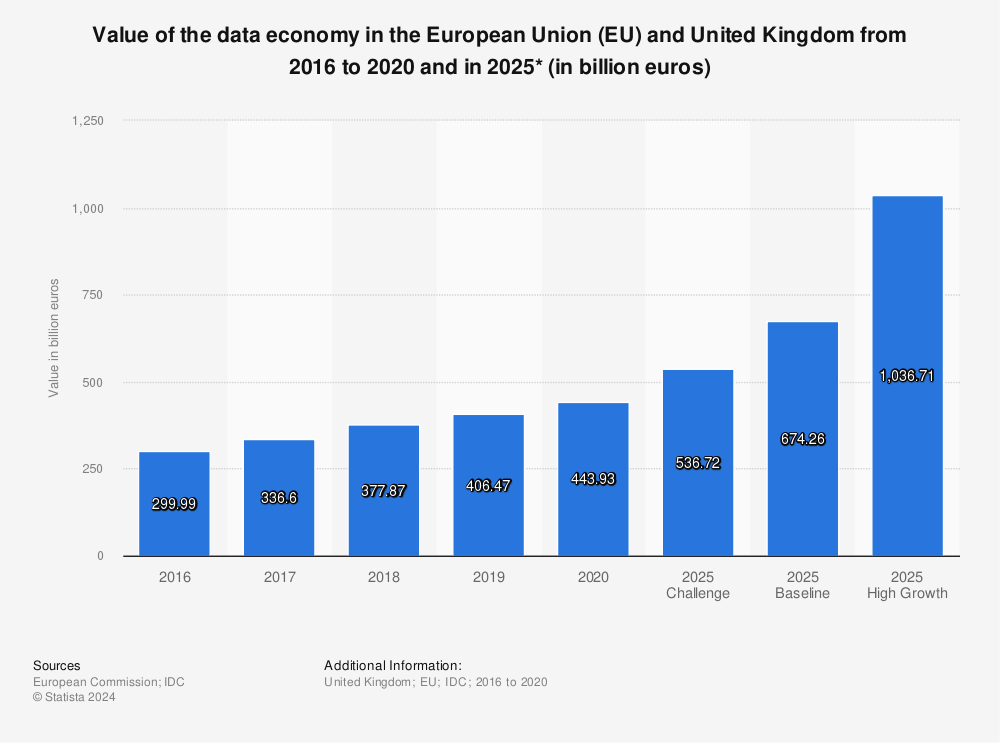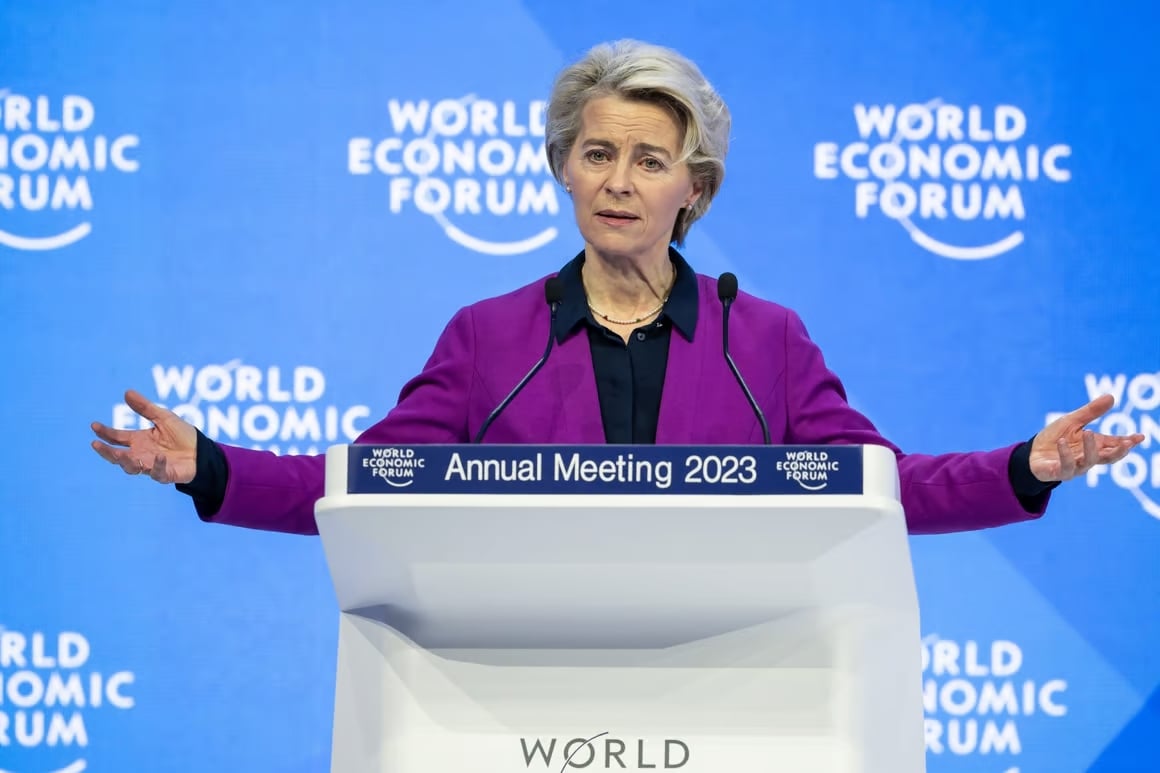The European economy is falling further behind the US. Since the 2008 financial crisis, the Eurozone has been growing more slowly than the world’s largest economy, the US, and this gap has been widened by global events such as Covid-19, then the Russia-Ukraine conflict, and most recently the clashes in the Middle East, which have negatively affected energy prices.
From the beginning of 2023, Europe continues to face the most difficult tests, the consequences of the Russia-Ukraine conflict that has not ended, the inflation rate has decreased but not as expected, international trade has resumed, but the supply chain is disrupted, continuing to put the Eurozone under economic pressure of recession, leading to increased risks of political and social instability. According to the IMF's updated forecast, the Eurozone economy will only grow by 0.7% in 2023 and 1.2% in 2024, down 0.2 and 0.3 percentage points respectively compared to the institution's previous forecast.

However, amid the gray outlook, the data economy in the “old” continent has shown its role as a “bright spot”, a model for other countries to follow.
The positive momentum of the EU data market and data companies is reflected in the continued strong growth of the data economy, demonstrating the value of the direct and indirect impacts of the data market on the overall economy. The European data economy reached €496 billion in 2022, up 8.9% year-on-year, a remarkable achievement given the negative macroeconomic context. The share of the data economy in EU GDP reached 3.9% compared to 3.7% in the previous year.
Digital data "intelligence"
Forced to deal with multiple economic and geopolitical tensions, European businesses are strategically focusing on digital transformation, pursuing goals of resilience as well as revenue growth.
The post-pandemic period has seen organisations here recognise the importance of digital business models as a key enabler, along with a clear understanding of the relevant role of “data intelligence” – not just the use of data assets but also the ability to effectively manage and leverage internal and external data for strategic purposes.

“Today, many companies have huge amounts of data, but only a few are able to fully exploit its potential,” said Mario Grotz, director general of the Industrial Research and New Technologies Division at the Luxembourg Ministry of Economy. The small European island nation sees crises as an opportunity to innovate and reinforce its commitment to becoming a leading sustainable data economy.
In 2022, the data economy of the 27 EU member states (EU27) recorded impressive growth, with a value of nearly 500 billion USD, up 8.9% over the previous year, accounting for 3.9% of GDP market share, up from 3.7% in 2021.
Also last year, the value of the EU27 data market – where digital data is exchanged as “products” or services” – reached €72.9 billion, growing by 12.6%, double that of 2021, reaching €73 billion. Profit-generating data transactions, such as the purchase and sale of data assets between organizations, accounted for 26% of the overall data market value in 2022, equivalent to €19 billion for the EU27, and is expected to reach a market share of 30% by 2030.

Common data market
Data is at the heart of the digital transformation. As such, data is the most fundamental and important foundation for long-term economic growth in Europe. The EU-designed single data market will enable companies (especially SMEs) across the EU to benefit from data that they otherwise have difficulty or cannot access.
“European data will be used by European companies to create value in Europe,” Internal Market Commissioner Thierry Breton summarized the concept of the single data market at a meeting in Berlin in 2020.

That same year, the European Commission (EC) discussed the creation of a “European data space.” “This is our goal to shape the digital future,” said Ursula von der Leyen, the president of the European Commission, at the time. As digital transformation becomes mainstream, the number of European data companies has increased in tandem with the data market. The number of European data providers (organizations whose core business is the production and supply of digital data-related products, services and technologies) increased to 216,000 in 2022, up 13.3% from the previous year, representing 2% of the total number of companies in the ICT and professional services sector compared to 1.8% in 2021. Data provider revenues increased to €84 billion in 2022, from €75 billion in 2021.
Germany remains the leading data market with a 29% share, followed by France with 17%. Five member states (Germany, France, Italy, the Netherlands and Spain) account for more than 68% of the data market in the EU27, showing that data trading is positively correlated with advanced and differentiated economies with good growth.
In an open digital economy, partnerships help the EU accelerate the development of new technologies so they can become global solutions. Partnerships also create open spaces where the EU can promote European digital standards and the benefits of the bloc as a whole, said EC Vice President Vestager.
Maximilian Karl Emil Weber, one of the most important theorists of the development of modern Western society in the early 20th century, pointed out that many social phenomena, such as science, journalism, musical harmony, architecture, the university model, etc., had their origins in other lands, but only in Europe did they become universal models for the next stage of world development. The data economy may also be such a phenomenon.

Source







![[Photo] Prime Minister Pham Minh Chinh receives Mr. Jefferey Perlman, CEO of Warburg Pincus Group (USA)](https://vstatic.vietnam.vn/vietnam/resource/IMAGE/2025/4/18/c37781eeb50342f09d8fe6841db2426c)


















































































Comment (0)